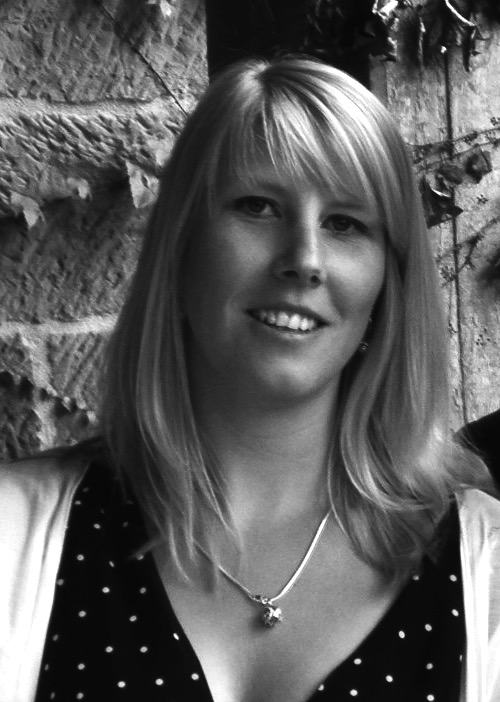Constanze Seidel research profile
Dr. Constanze Seidel
Research Fellow
 Email: constanze.seidel@manchester.ac.uk or dr.constanze.seidel@gmail.com
Email: constanze.seidel@manchester.ac.uk or dr.constanze.seidel@gmail.com
Telephone: +44 (0) 161 275 5411
Manchester Fungal Infection Group, Institute of Inflammation and Repair, Faculty of Medical and Human Sciences
University of Manchester
46 Grafton Street, CTF Building,
Manchester M13 9NT
RESEARCH INTERESTS
Fungi have the broadest host range of any group of pathogens and invasive fungal diseases and have been increasing their virulence and geographic distribution in recent years. The most common invasive mould infection is caused by Aspergillus fumigatus and it has been estimated that more than 3 million people worldwide are infected with it. Hence, there is urgent need to understand the process of infection at the cellular level. Currently, I am gaining insights into the complex roles of the cytoskeleton and Ca2+-signaling in the human fungal pathogen A. fumigatus. I investigate the fascinating role of the cytoskeleton (microtubules and actin) in vitro but also in vivo by performing fungal infection assays using A. fumigatus and human alveolar basal epithelial cells. Previously, I intensively studied the microtubule-dependent kinesin-3 motor protein UncA in two filamentous fungal models, Aspergillus nidulans and Neurospora crassa.
EDUCATION AND RELEVANT RESEARCH
01/2014 to present Research fellow, Molecular and Medical Microbiology
"Calcium signaling and cytoskeletal dynamics during hyphal growth and infection by the human fungal pathogen A. fumigatus".
University of Manchester, Institute of Inflammation and Repair, Manchester Fungal Infection Group (MFIG) with Prof. N. D. Read
- Determine the influence of Ca2+-signaling on the dynamics of the cytoskeleton, endosomal movement and molecular motors during hyphal growth and infection
- Establishment of infection assays with mammalian epithelial cells (A549)
- Identification of proteins that play key roles in Ca2+-signaling during polarized hyphal growth and infection of mammalian epithelial cells by generating deletion and over-expression mutants as wells as localization and quantification studies of key proteins involved in Ca2+-signaling
- Generation of a GCaMP6s expressing strain (in different genetic backgrounds) to optimize live-cell imaging of intracellular Ca2+ in A. fumigatus to decode [Ca2+]c-spiking
- Funded by a personal 2 years post-doctoral fellowship by the German Science Foundation (DFG)
05/2013 - 12/2013 Research Associate, Molecular Microbiology
“Analysis of kinesin-3 cargoes and endosomal traffic in A. nidulans and Rab-GTPases in N. crassa".
Karlsruhe Institute of Technology, Institute for Applied Biosciences, with Prof. Dr. R. Fischer
- Analysis of endosomal and secretoric traffic by GFP-tagging and BiFC analyses of several candidate genes in A. nidulans
- Investigate cargoes of the kinesin-3 motor UncA in A. nidulans by live-cell imaging and Yeast-Two-Hybrid analyses
09/2009 - 04/2013 PhD Studies, Molecular Microbiology
“Analysis of the kinesin-3 motor UncA in the filamentous fungi A. nidulans and N. crassa".
Karlsruhe Institute of Technology, Institute for Applied Biosciences, with Prof. Dr. R. Fischer
- Analysis of the kinesin-3 motor UncA in the filamentous fungi A. nidulans and N. crassa, specifically its microtubule specificity and potential cargoes
- Investigation of the existence of posttranslational modifications (PTM) of α-tubulin in A. nidulans
- Purification of endosomes using sucrose density fractionation and N. crassa imaging; this project has been performed at the Center for Scientific Research and higher education (CICESE), Mexico, in Colaboration with Dr. M. Riquelme (03/2011-07/2012, 01/2012 and 06/2012)
- Generation of deletion mutants and mRFP-fusion proteins of different A. nidulans hydrophobins and subsequent water-contact-angle assays and investestig rodelet formation by scanning the surface of different mutants using AFM
- Funded by a personal 2 years PhD fellowship by the Landesgraduiertenförderung des Landes BW
10/2008 - 07/2009 Diploma thesis, Molecular Microbiology
“Analysis of the kinesin-3 motor UncA in A. nidulans".
Karlsruhe Institute of Technology, Institute for Applied Biosciences, with Prof. Dr. R. Fischer
- Analysis of the kinesin-3 motor UncA in A. nidulans using live-cell imaging
- Dissection of an 80 amino acids stretch in the kinesin-3 motor which is necesseary for microtubule specificity and renders the specificity in other kinesin motors
- Creation of several chimeric motor proteins and investigate their localization pattern in A. nidulans
10/2004 - 09/2008 Diploma studies in Biology
Karlsruhe Institute of Technology, with focus on: Microbiology and Biochemistry
PUBLICATIONS
2014
- Sánchez-León E, Bowman B, Seidel C, Fischer R, Novick P and Riquelme M (2014). The Rab GTPase YPT-1 associates with Golgi cisternae and Spitzenkörper microvesicles in Neurospora crassa. Mol Microbiol 10.1111/mmi.12878.
- Pöhlmann J, Risse C, Seidel C, Pohlmann T, Jakopec V, Walla E, Ramrath P, Takeshita N, Feldbrügge M, Fischer R and Fleig U. (2014). The Vip1 inositol polyphosphate kinase family regulates polarized growth and modulates the microtubule cytoskeleton in fungi. PLoS Genetics 10(9):e1004586.
- Grünbacher A, Throm T, Seidel C, Gutt B, Röhrig J, Strunk T, Vincze P, Walheim S, Schimmel T, Wenzel W and Fischer R. (2014). Six hydrophobins are involved in hydrophobin rodlet formation in Aspergillus nidulans and contribute to hydrophobicity of the spore surface. PLoS One 9(4): e94546.
2013
- Seidel C, Moreno-Velásquez SD, Riquelme M and Fischer R (2013). Neurospora crassa NKIN2, a kinesin-3 motor, transports early endosomes and is requiered for polarized grwoth. Eukaryotic Cell, 12: 1020-1032.
2012
- Seidel C, Zekert N and Fischer R (2012). The Aspergillus nidulans kinesin-3 tail is necessary and sufficient to recognize modified microtubules. PLoS One 7(2): e30976.
